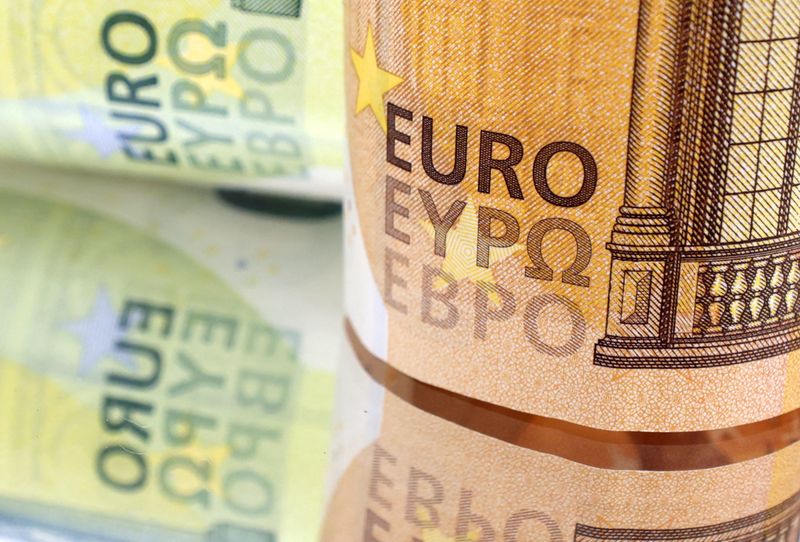By Howard Schneider, Balazs Koranyi and Leika Kihara
WASHINGTON/FRANKFURT/TOKYO (Reuters) -Two years into confronting rising inflation, the world's top central banks are still waiting for a decisive turn in their favor, with monetary policy edging ever tighter and policymakers maintaining their pursuit of a common 2% inflation target.
The European Central Bank on Thursday raised its key interest rates by another quarter of a percentage point, but more notably raised its inflation outlook to show prices still rising through 2025 at what ECB President Christine Lagarde said was an "unacceptable level."
More rate increases were coming, she said.
"Are we done? Have we finished the journey? No ... Do we still have ground to cover? Yes ... Barring a material change to our baseline, it is very likely the case that we will continue to increase rates in July," Lagarde said in a press conference following the ECB decision.
Her comments were stronger than those of the U.S. Federal Reserve on Wednesday, when policymakers opted to hold rates steady after 10 consecutive hikes that pushed its benchmark overnight interest rate to the 5.00%-5.25% range.
But that was largely a precaution, to take stock for a few weeks of where the economy is heading.
New U.S. policymaker projections showed the inflation fight lasting longer than expected and requiring a tighter-than-anticipated path for policy moving forward.
"If you look at the full range of inflation data, particularly the core data, you just aren't seeing a lot of progress over the last year," Fed Chair Jerome Powell said after this week's two-day policy meeting at which, like the ECB, officials raised their estimates of where inflation will end this year.
"Perhaps more restraint will be necessary than we thought at the last meeting," Powell said of policymaker projections that two more quarter-percentage-point rate increases will be needed by the end of this year.
The Bank of England meets next week and is also expected to continue raising rates amid faster-than-expected inflation. The Reserve Bank of Australia and the Bank of Canada recently resumed rate hikes after having paused them earlier this year.
The Bank of Japan remained an outlier by keeping interest rates ultra-low and dovish guidance on Friday, as it cautiously waits for more signs of durable, demand-driven price rises.
But BOJ Governor Kazuo Ueda said he was seeing notable changes in corporate price-setting behavior, and mindful of the risk of an inflation overshoot.
"At present, inflation has exceeded 2% for 13 straight months but could fall below that level ahead. That's why we are not normalising monetary policy. But if that view changes sharply, we will have to change policy," he said.
LAST MILE
The Fed's pause was partly out of respect for the time lag between rate increases and their impact on the economy.
But both Powell and Lagarde said that while they were watching carefully to see how the impact of policy accumulates, their patience could not be infinite.
The ECB needs to see the effects of policy go "all the way down to inflation," Lagarde said. "We're going to get to that 2%."
The data show what may prove to be a developing "last-mile" problem for the major central banks, which faced similar outbreaks of inflation during the COVID-19 pandemic reopening, though each had slightly different sources and contours.
Some, and particularly the Fed, saw initial improvement as the reopening proceeded, commerce returned to normal, and goods shipments rebounded.
But over time the sources of inflation rotated from one spot of the economy to another. Lagarde said she is now concerned wages will drive prices higher even as energy and food, the initial culprits, are now aiding the cause; in the U.S. there is concern about that as well as ongoing high demand and excess savings in the hands of consumers.
That has meant a slow expected return to target.
As in Europe, U.S. inflation is projected by the Fed to remain above target at the end of 2025, though policymakers see it close by then, at about 2.1%.
In the meantime, efforts to balance risks have led policymakers to slow the pace of rate increases even as they refrain from any precise steer towards a "terminal," or peak, interest rate for the current tightening cycle.
Lagarde said the endpoint "is something we will know when we get there" because of how inflation is behaving.

Powell, as well, said that even though "the risks of sort of overdoing it and underdoing it are getting closer to being balanced," the focus remains on inflation.
"I still think, and my colleagues agree, that the risks to inflation are to the upside," Powell said. "What we'd like to see is credible evidence that inflation is topping out and then beginning to come down."